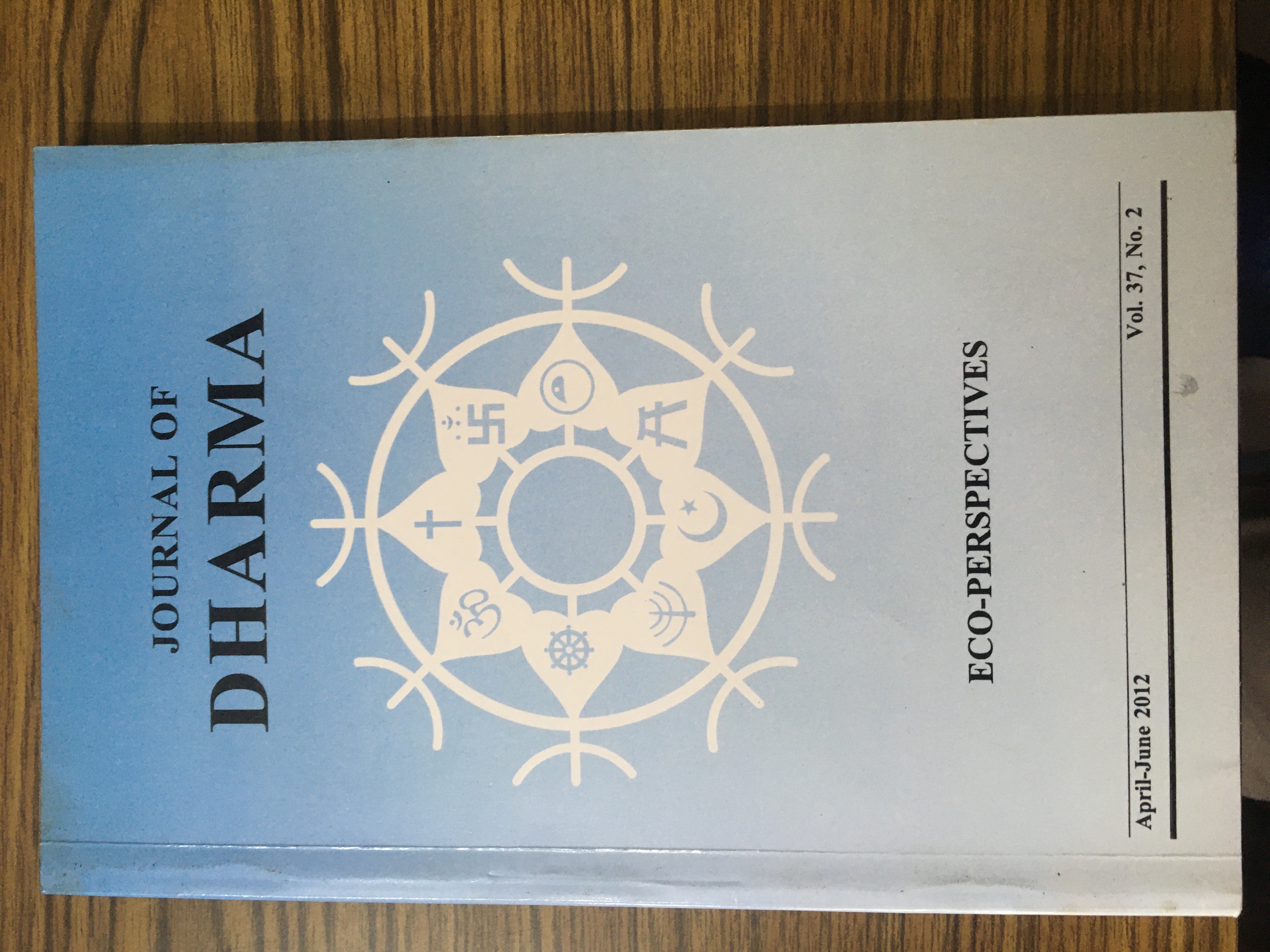IN SUPPORT OF A SUSTAINABLE GREEN EARTH
A Paradigm Shift from Homo Faber towards Homo Custos
Keywords:
Aristotelian Organism, Power of Human Reason to Discover Patters in Nature, Ascendency of Cartesian Atomism, Dominance and Exploitation, Macroscopic History of the Physical Universe, Macroscopic History of Life, Homo Faber Constructs a Crisis, Homo CustosAbstract
The development of culture associated with humanity was inextricably intertwined with the developments of gadgets. The nomadic hunters developed sharp tools in their prehistoric search for food and when settled millennia later as agricultures designed and decorated pots, houses, streets and numerous gadgets in an attempt to control the environment and to make life easier. However, greed did not overtake humanity’s aspirations till the industrial revolution in the eighteenth century. Till that time, there was a balance between the technological development and the environmental sustainability. However from the industrial revolution onwards, mass production or fabrication started to pollute the earth. The industrial waste whether it is the water coming out of the factories or the gaseous elements spit from its chimneys or the exhaust from the vehicles or the advanced waste from the nuclear reactors started to contaminate and pollute the earth and even the outer space. The paradigm that determined and governed humanity was that the earth was given totally to the humanity and we could utilize it in any way which led to the exploitation and the ultimate disaster with the environment. To a certain extent the environmental catastrophe is due to the character of humanity as a faber and it has to be corrected. The dominating, manipulating and engineering perspective is to be replaced with the perspective of a steward; the perspective of homo faber is to be replaced with the mindfulness of homo custos; only then the sustainable progress of humanity is possible. Otherwise pollutions will collapse the environment which will catapult inevitably the end of humanity. Therefore the paradigm shift from homo faber towards homo custos is inevitable.
References
Mathew Chandrankunnel, Ascent to Truth: The Physics, Philosophy and Religion of Galileo Galilei, Thiruvanathapuram: ICCRI, 2011, 8-10.
Marie Boas Hall, The Scientific Renaissance 1450-1630, New York: Dover Publications, 1994. David C. Lindberg, The Beginnings of Western Science, Chicago: The University of Chicago Press, 1992.
Roger Penrose, The Road to Reality, London: Alfred A. Knopf, 2004.
Mathew Chandrankunnel, Quantum Holism to Cosmic Holism: The Philosophy of Quantum Mechanics, New Delhi: Global Vision Publishers, 2008.
Carl Sagan, The Dragons of Eden, New York: Ballantine Books, 1977.
Indian Express, 27 June, 2000.
Juan de Dios Vial Correa and Elio Sgreccia, Human Genome, Human Person and the Society of the Future, Proceedings of the Fourth Assembly of the Pontifical Academy of Life, Vatican: Liberia Editrice Vaticana, 1999, 7.
Charles Darwin, Origin of Species, London: Wilside Press, 2003.
Fritjof Capra, The Turning Point, New York: Simon and Schuster, 1988.
C. Dilworth, The Metaphysics of Science, Dordrecht: Kluwer, 1996, 207-208.

